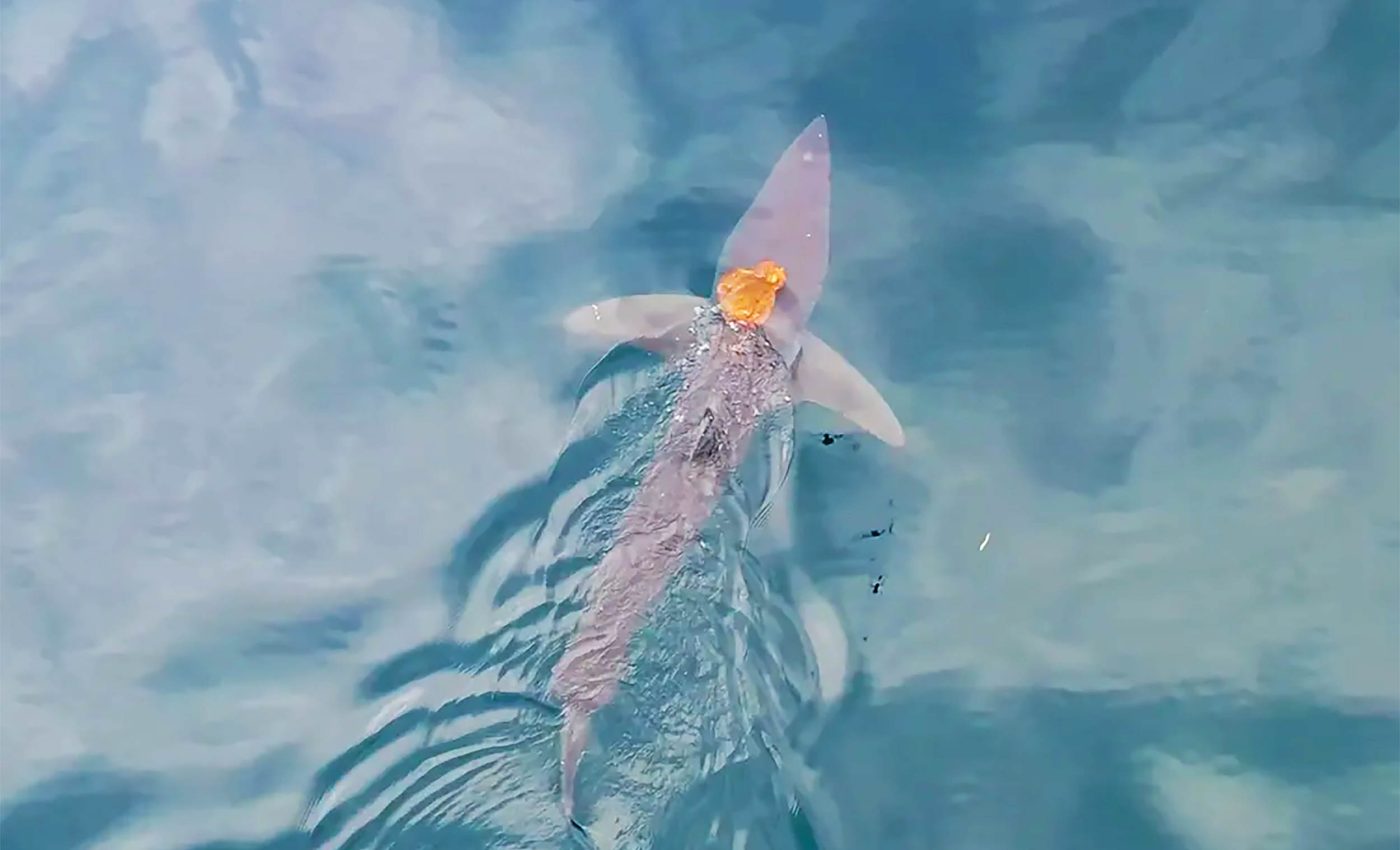
Octopus caught riding on the back of the world's fastest shark in the open ocean
An octopus taking a piggyback ride on a shark might sound like a tall tale. Yet a surprising video from the waters near New Zealand has given ocean-watchers cause to scratch their heads.
Marine biology professor Rochelle Constantine from the University of Auckland was on hand to document this unusual sight.
She spotted a bright octopus clinging to a powerful shortfin mako shark, the fastest of its kind in open ocean waters.
Sharks and octopuses aren’t typically friends
This get-together was no mild meeting of acquaintances. The shark was swimming along without appearing bothered by its unusual passenger, while the octopus held on with all of its eight arms.
“The ocean is filled with unexpected things,” stated Constantine, in a note shared after the research trip. Reports suggest the creature stuck close to the shark’s dorsal area.
Technology helped catch the octopus ride
Without modern tools, this strange event would’ve gone unnoticed. The research team launched a drone and used a GoPro to get a clear view of what was really on the shark’s back.
Drones and waterproof cameras have become essential equipment for marine science. They let researchers monitor wildlife safely and document rare behaviors without disturbing the animals.
Shortfin mako’s swift reputation
Many people find the shortfin mako shark intriguing. It holds the title for the highest speed among all sharks, clocking more than 40 miles (64 kilometers) per hour.
These sharks grow to impressive sizes, often stretching nearly 12 feet (3.7 meters). Their streamlined bodies and aerodynamic fins help them chase swift prey like tuna and even other sharks.
How the octopus got on the shark
While sharks command plenty of attention, the octopus is no minor figure. Octopuses are known for their flexible bodies, color-changing abilities, and knack for staying out of harm’s way.
Scientists believe octopuses sense vibrations through the water, making them skilled at evading predators.
Their soft tissues allow them to slip through narrow spaces, which raises questions about how one ended up on the back of a large shark.
Encounter stories like these usually come from hidden pockets of the ocean. This unexpected duo popped up near the northern coast of New Zealand’s North Island.
“Incredible moments like this remind us there is more we don’t know than we do,” remarked Constantine. She and her team observed the hitchhiking octopus for a short while before it continued onward.
What might the octopus be thinking?
Octopuses have been seen using tools, escaping tight spots, and even unscrewing the lids of jars from the inside.
Some scientists believe they have short-term memory and a basic sense of planning, which might suggest that this hitchhiking event wasn’t purely accidental.
Could the octopus have been hiding from a predator, or trying to explore a new environment? Researchers don’t yet know.
But holding tight to a moving shark might have offered camouflage, faster travel, or just a brief break from danger in open waters.
Why does any of this matter?
Shortfin mako sharks face threats from commercial fishing and the global fin trade. They are listed as endangered by the International Union for Conservation of Nature.
Although efforts to regulate shark fishing exist, bycatch remains a major concern. Mako sharks reproduce slowly, so their numbers can’t easily recover after heavy fishing pressure.
Odd encounters can teach scientists new things about predator-prey behaviors. Sharks usually swim near the surface, while octopuses often stick to the seafloor, which makes the partnership puzzling.
Data on these interspecies moments can hint at changes in ocean conditions, habitats, or species movements. Spotting an octopus in open water might be a signal about local currents or unusual feeding patterns.
Sharks and octopuses grab attention
When species behave in ways that don’t match typical patterns, it forces scientists to recheck assumptions.
An octopus riding a shark may seem like a one-off event, but it raises deeper questions about movement, interaction, and adaptability in marine life.
Unusual pairings like this one can highlight stressors in the ecosystem, such as food scarcity, habitat shifts, or climate-related disruption.
Even a short encounter, captured by chance, might help piece together a larger puzzle about how animals are adjusting to human-altered oceans.
What happens next?
People sometimes label sharks as dangerous. Videos showing a calm mako might reshape how some view these agile hunters.
Similarly, an octopus is no simple creature. Researchers have found them to be quite intelligent, capable of short-term problem-solving and playful exploration.
There is still much to learn about how often such hitchhikes happen or why they occur. Marine experts encourage curious minds to support healthy ecosystems by reducing pollution and changing harmful fishing methods.
“One of the best things about being a marine scientist is that you never know what you might see next in the sea,” wrote Constantine. When wild animals surprise us, it can spark fresh interest in protecting them and their homes.
Click here to watch the video of an octopus riding a shark…
—–
Like what you read? Subscribe to our newsletter for engaging articles, exclusive content, and the latest updates.
Check us out on EarthSnap, a free app brought to you by Eric Ralls and Earth.com.
—–













